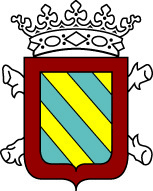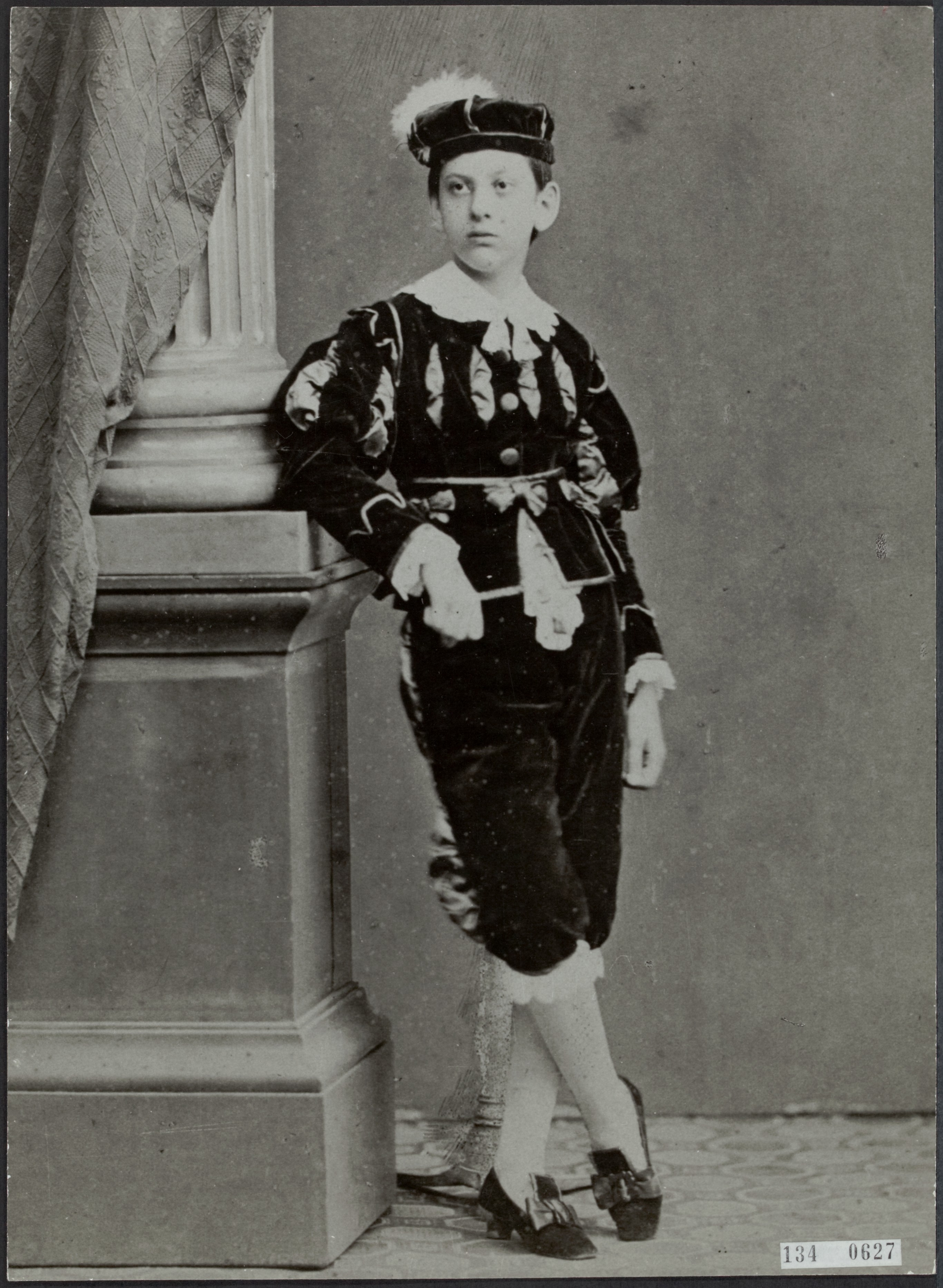|
Flor Alpaerts
Flor Alpaerts (Antwerp, 12 September 1876 – Antwerp, 5 October 1954) was a Belgian conductor, pedagogue and composer. He graduated from the ''Vlaamse Muziekschool'' in 1901. He was artistic director of the Peter Benoit Foundation, co-director of the Royal Flemish Opera and a member of the Royal Academy of Belgium. As a composer he became the leading Flemish impressionist, with the symphonic poem ''Pallieter'' (1921-1924). Alpaerts left behind an extensive body of work. He first composed in an impressionist style, later expressionist, and finally neo-classical. He drew his inspiration from Flemish life. Peter Benoit was his great model, but he adapted Benoit's principles and gave Flemish music a modern mode of expression and a contemporary face. He wrote above all for the symphony orchestra, but he also wrote incidental music, an opera, many Flemish songs, chamber music and work for brass bands and wind ensembles. Notable students include the two composers, Denise Tolkowsky a ... [...More Info...] [...Related Items...] OR: [Wikipedia] [Google] [Baidu] |
Antwerp
Antwerp (; nl, Antwerpen ; french: Anvers ; es, Amberes) is the largest city in Belgium by area at and the capital of Antwerp Province in the Flemish Region. With a population of 520,504,Statistics Belgium; ''Loop van de bevolking per gemeente'' (Excel file) Population of all municipalities in Belgium, . Retrieved 1 November 2017. it is the most populous municipality in Belgium, and with a metropolitan population of around 1,200,000 people, it is the second-largest ... [...More Info...] [...Related Items...] OR: [Wikipedia] [Google] [Baidu] |
Belgium
Belgium, ; french: Belgique ; german: Belgien officially the Kingdom of Belgium, is a country in Northwestern Europe. The country is bordered by the Netherlands to the north, Germany to the east, Luxembourg to the southeast, France to the southwest, and the North Sea to the northwest. It covers an area of and has a population of more than 11.5 million, making it the 22nd most densely populated country in the world and the 6th most densely populated country in Europe, with a density of . Belgium is part of an area known as the Low Countries, historically a somewhat larger region than the Benelux group of states, as it also included parts of northern France. The capital and largest city is Brussels; other major cities are Antwerp, Ghent, Charleroi, Liège, Bruges, Namur, and Leuven. Belgium is a sovereign state and a federal constitutional monarchy with a parliamentary system. Its institutional organization is complex and is structured on both regional ... [...More Info...] [...Related Items...] OR: [Wikipedia] [Google] [Baidu] |
Peter Benoit
Peter Benoit (17 August 18348 March 1901) was a Flemish composer of Belgian nationality. Biography Petrus Leonardus Leopoldus Benoit was born in Harelbeke, Flanders, Belgium in 1834. He was taught music at an early age by his father and the village organist. In 1851 Benoit entered the Brussels Conservatoire, where he remained till 1855, studying primarily with FJ Fétis. During this period he composed music to many melodramas, and to the opera ''Le Village dans les montagnes'' for the Park Theatre, of which in 1856 he became the resident conductor. In 1857 he won the Belgian Prix de Rome for his cantata ''Le Meurtre d'Abel''. The accompanying money grant enabled him to travel through Germany. In the course of his journings he found time to write a considerable amount of music, as well as an essay called ''L'École de musique flamande et son avenir''. Fétis loudly praised his ''Messe solennelle'', which Benoit composed in Brussels on his return from Germany. In 1861 he visit ... [...More Info...] [...Related Items...] OR: [Wikipedia] [Google] [Baidu] |
The Royal Academies For Science And The Arts Of Belgium
The Royal Academies for Science and the Arts of Belgium (RASAB) is a non-governmental association which promotes and organises science and the arts in Belgium by coordinating the national and international activities of its constituent academies such as the National Scientific Committees and the representation of Belgium in international scientific organisations. RASAB was formed as a non-profit organization (Association without lucrative purpose) in 2001 by the Dutch-speaking academy KVAB (Koninklijke Vlaamse Academie van België voor Wetenschappen en Kunsten i.e. ''Royal Flemish Academy of Belgium for Science and the Arts'') and by the French-speaking academy ARB ( i.e. ''The Royal Academy of Science, Letters and Fine Arts of Belgium''). The association is headquartered in the buildings of the former Royal Stables at the Academy Palace, Hertogsstraat 1 Rue Ducale B-1000 Brussels. History Academies RASAB was founded in 2001 by the two Belgian academies which are connecte ... [...More Info...] [...Related Items...] OR: [Wikipedia] [Google] [Baidu] |
Denise Tolkowsky
Denise Tolkowsky (11 August 1918 – 9 March 1991) was an English-born pianist and composer. Biography Denise Tolkowsky was born in Brighton, England, the daughter of a Russian father and Flemish singer and actress Anna Kennes. She studied music at the Royal Flemish Conservatory in Antwerp, with E. Durlet for piano, Edward Verheyden for harmony, Karel Candael for counterpoint and fugue and Flor Alpaerts for composition. She married pianist Alex de Vries and worked as a composer and concert pianist, sometimes performing in a duo with de Vries. He committed suicide in May 1964 and Tolkowsky set up Alex de Vries Fund in his honor, an organization to assist young musicians in starting their careers. Tolkowsky became director of the Flemish region of Yehudi Menuhin's Live Music Now in 1980. She died in Antwerp, Belgium Belgium, ; french: Belgique ; german: Belgien officially the Kingdom of Belgium, is a country in Northwestern Europe. The country is bordered by the ... [...More Info...] [...Related Items...] OR: [Wikipedia] [Google] [Baidu] |
Ernest Schuyten
Ernest Eugene Schuyten (7 November 1881 – November 1974) was a Belgian-born composer of classical music. Ernest Schuyten was born in Antwerp (Belgium). He studied first at the Brussels Conservatory under Flor Alpaerts (he graduated in 1900 as a violinist) and later at the Royal Conservatoire of Antwerp (graduated in 1903). In 1910 (other sources give the year 1915) Ernest Schuyten emigrated to the US, settled in New Orleans and later became a naturalized citizen of the United States. He became head of the violin department of the H. Sophie Newcomb Memorial College, conducted the New Orleans Symphony Orchestra and founded in 1916 the Crescent City Symphony. This orchestra emerged later into the New Orleans Philharmonic Symphony. In 1919 Ernest Schuyten left the H. Sophie Newcomb Memorial College and founded the New Orleans Conservatory of Music and Dramatic Arts. The Conservatory was incorporated in 1932 into the Loyola University New Orleans which formed the College o ... [...More Info...] [...Related Items...] OR: [Wikipedia] [Google] [Baidu] |
Louis Couperus
Louis Marie-Anne Couperus (10 June 1863 – 16 July 1923) was a Dutch novelist and poet. His oeuvre contains a wide variety of genres: lyric poetry, psychological and historical novels, novellas, short stories, fairy tales, feuilletons and sketches. Couperus is considered to be one of the foremost figures in Dutch literature. In 1923, he was awarded the '' Tollensprijs'' (Tollens Prize). Couperus and his wife travelled extensively in Europe and Asia, and he later wrote several related travelogues which were published weekly. Youth Louis Marie-Anne Couperus was born on 10 June 1863 at Mauritskade 11 in The Hague, Netherlands, into a long-established, '' Indo'' family of the colonial landed gentry of the Dutch East Indies. He was the eleventh and youngest child of John Ricus Couperus (1816–1902), a prominent colonial administrator, lawyer and '' landheer'' or lord of the private domain ('' particuliere land'') of Tjikopo in Java, and Catharina Geertruida Reynst (1829–189 ... [...More Info...] [...Related Items...] OR: [Wikipedia] [Google] [Baidu] |
1876 Births
Events January–March * January 1 ** The Reichsbank opens in Berlin. ** The Bass Brewery Red Triangle becomes the world's first registered trademark symbol. * February 2 – The National League, National League of Professional Base Ball Clubs is formed at a meeting in Chicago; it replaces the National Association of Professional Base Ball Players. Morgan Bulkeley of the Hartford Dark Blues is selected as the league's first president. * February 2 – Third Carlist War – Battle of Montejurra: The new commander General Fernando Primo de Rivera marches on the remaining Carlist stronghold at Estella-Lizarra, Estella, where he meets a force of about 1,600 men under General Carlos Calderón, at nearby Montejurra. After a courageous and costly defence, Calderón is forced to withdraw. * February 14 – Alexander Graham Bell applies for a patent for the telephone, as does Elisha Gray. * February 19 – Third Carlist War: Government troops under General Pr ... [...More Info...] [...Related Items...] OR: [Wikipedia] [Google] [Baidu] |
1954 Deaths
Events January * January 1 – The Soviet Union ceases to demand war reparations from West Germany. * January 3 – The Italian broadcaster RAI officially begins transmitting. * January 7 – Georgetown-IBM experiment: The first public demonstration of a machine translation system is held in New York, at the head office of IBM. * January 10 – BOAC Flight 781, a de Havilland Comet jet plane, disintegrates in mid-air due to metal fatigue, and crashes in the Mediterranean near Elba; all 35 people on board are killed. * January 12 – Avalanches in Austria kill more than 200. * January 15 – Mau Mau leader Waruhiu Itote is captured in Kenya. * January 17 – In Yugoslavia, Milovan Đilas, one of the leading members of the League of Communists of Yugoslavia, is relieved of his duties. * January 20 – The US-based National Negro Network is established, with 46 member radio stations. * January 21 – The first nuclear-pow ... [...More Info...] [...Related Items...] OR: [Wikipedia] [Google] [Baidu] |
19th-century Classical Composers
The 19th (nineteenth) century began on 1 January 1801 ( MDCCCI), and ended on 31 December 1900 ( MCM). The 19th century was the ninth century of the 2nd millennium. The 19th century was characterized by vast social upheaval. Slavery was abolished in much of Europe and the Americas. The First Industrial Revolution, though it began in the late 18th century, expanding beyond its British homeland for the first time during this century, particularly remaking the economies and societies of the Low Countries, the Rhineland, Northern Italy, and the Northeastern United States. A few decades later, the Second Industrial Revolution led to ever more massive urbanization and much higher levels of productivity, profit, and prosperity, a pattern that continued into the 20th century. The Islamic gunpowder empires fell into decline and European imperialism brought much of South Asia, Southeast Asia, and almost all of Africa under colonial rule. It was also marked by the collapse of the l ... [...More Info...] [...Related Items...] OR: [Wikipedia] [Google] [Baidu] |
19th-century Belgian Male Musicians
The 19th (nineteenth) century began on 1 January 1801 ( MDCCCI), and ended on 31 December 1900 ( MCM). The 19th century was the ninth century of the 2nd millennium. The 19th century was characterized by vast social upheaval. Slavery was abolished in much of Europe and the Americas. The First Industrial Revolution, though it began in the late 18th century, expanding beyond its British homeland for the first time during this century, particularly remaking the economies and societies of the Low Countries, the Rhineland, Northern Italy, and the Northeastern United States. A few decades later, the Second Industrial Revolution led to ever more massive urbanization and much higher levels of productivity, profit, and prosperity, a pattern that continued into the 20th century. The Islamic gunpowder empires fell into decline and European imperialism brought much of South Asia, Southeast Asia, and almost all of Africa under colonial rule. It was also marked by the collapse of the la ... [...More Info...] [...Related Items...] OR: [Wikipedia] [Google] [Baidu] |







